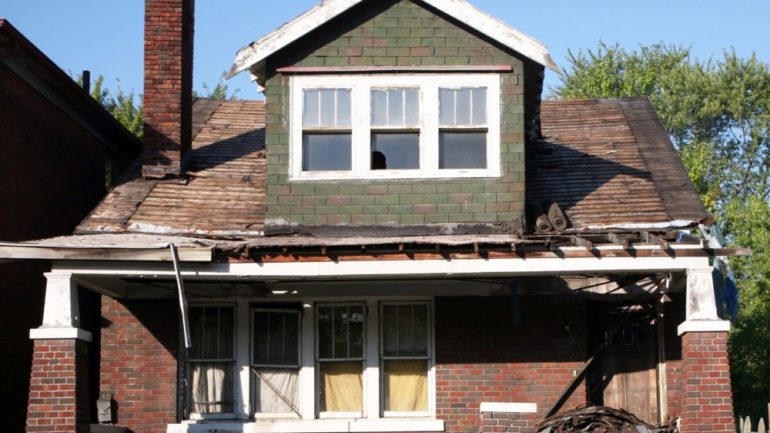An abandoned, decaying house in your neighborhood — also known as a ‘zombie’ house — could mean big trouble for you and your neighbors, especially if you’re planning to put your home on the market any time soon.
How to recognize a zombie. Typically long abandoned, a zombie house may have broken windows, a collapsing porch and rampant mold growth on the inside. A “condemned” sign may be taped to the front door.
Zombie houses are typically caught in foreclosure limbo. The owners are long gone, but foreclosure hasn’t been completed because of red tape and a backlog of other distressed properties. The house ends up being neglected, becoming an ugly monster in a neighborhood.
The danger is real. A zombie house can significantly lower property values, especially for the homes in closest proximity. Your home may be gorgeous, with well-maintained landscaping and striking curb appeal, but if a zombie house is next door, your home’s value likely will plummet.
Besides being an eyesore, abandoned homes are dangerous. Widespread mold is common. Wild animals may take up residence. Vagrants may move in as “squatters.” Thieves target abandoned homes for their appliances, the copper tubing in the air conditioning unit, and anything else of value. One word of caution: Be sure the house is not still occupied by an elderly or sick neighbor who simply needs help.
How to deal with a zombie house. Here are seven steps surrounding residents can take to help.
- Check with the county authorities to see if the house has been ordered for sheriff’s sale. This is the method by which mortgage companies take back ownership of a distressed house. If the date on the order of sale is more than 90 days old, it’s bogged down somehow in the process. For example, the owners may be fighting the foreclosure through the courts.
- Ask a neighborhood real estate agent to do a title search to find out the owners’ names and the mortgage company with a lien on the property. Contact the mortgage company and notify them that the house is in disrepair. Hearing from a resident of the neighborhood puts the company on notice that you want something done. If you can’t get results, contact the Consumer Financial Protection Bureau.
- Talk to the real estate agent for leads on people who buy fixer-upper houses for flipping or conversion into rentals. These are the kinds of properties they seek.
- Next, research whether state and local laws require mortgage companies to maintain properties in the event of a foreclosure. Such ordinances often impose stiff fines on owners or mortgage companies.
- Does your neighborhood have a homeowners association? The association can hire a lawn maintenance company to keep the grounds up and file a lien against the property for payment. That will get the mortgage company’s attention.
- If you see any illicit activity, call the police.
- Finally, if results are slow, band together with neighbors and schedule a cleanup day. Haul trash to the dump. Mow the grass and cut shrubbery. Once the yard is in better shape, consider creating a rotating schedule for neighbors to share mowing responsibilities throughout the year.


